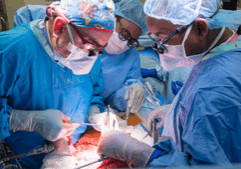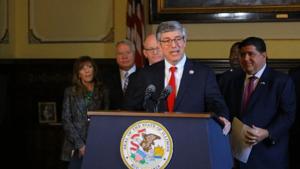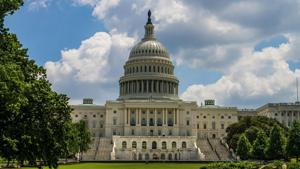
WATCH: UW-authored study on surgery times contradicts CMS basis for reimbursement cuts
New findings published in the Journal of the American College of Surgeons contradict the Centers for Medicare & Medicaid Services, or CMS, claim that surgery times have gotten shorter.
CMS has used the claims to justify a planned cut in reimbursement rates to surgeons.
Lead author Dr. Christopher Childers is an assistant professor of surgery at the University of Washington School of Medicine. He spoke with The Center Square about his findings.
“So, they released their proposed rule almost exactly a month ago now for 2026. And one of the things that’s been controversial is this kind of new policy that they’ve proposed called an efficiency adjustment,” Childers said of CMS’s proposed reduction in reimbursement for many physician services, including all surgical procedures by 2.5% starting in 2026.
According to Childers, despite advances in surgical techniques, operating times have stagnated or grown longer as surgeons care for more difficult patients.
“The argument that CMS was making in this proposed rule was that we’re getting more efficient. So, I’m doing surgery faster today than I [did] five years ago,” he explained. “That was their argument for why we should decrease the dollar value assigned to surgical procedures. Speaking for myself and other surgeons that I interact with, we don’t feel that’s the case. Things do not feel more efficient than they were five years ago.”
The study used nationwide surgical data from 1.7 million operations to evaluate the length of procedures.
“The American College of Surgeons has a database that they’ve been keeping for, I think, over 20 years now for surgical patients from around the country,” Childers said. “And they collect that data, and it’s primarily used for quality improvement efforts. You’re trying to figure out how we can reduce surgical site infections, how we can reduce length of stay, and just overall improve the care for patients.”
A news release from UW Medicine explained the data looked at operating times for 11 surgical specialties for standard procedures such as appendectomies, hernia repairs and hysterectomies.
“We did not see any evidence that things are getting faster. In fact, we actually saw a little bit of the opposite,” Childers noted. “We saw things are taking longer now than they were five years ago, because we are seeing more complicated, more sick patients. Patients are older. Patients have larger BMIs. They’re heavier than they were five years ago. They have more comorbidities. They’re more likely to have complications, so they’re staying in the hospital longer. And so, we’re not any more efficient. In fact, it might be the opposite.”
Childers – who is a cancer surgeon specializing in liver, pancreas and biliary procedures – said overall operation times have gone up by about 3%.
The proposed CMS changes will not, he says, save the government any money.
“Not in any way, shape, or form. If it did, I think that would be a very different discussion,” Childers said. “What it does is it just basically reduces the dollar values that are going to this very long list of things like surgery that are obviously of interest to me. What it does is it just reallocates that money to other services. And so, there’s no net savings from this.”
According to Childers, CMS’s stated goal has been to increase pay for primary care physicians because there is a major shortage of providers, especially in rural areas.
“The goal of this effort is a noble one in the sense that they feel that this country would benefit from having more primary care providers and that we should increase payment to primary care providers,” he said. “And even if you are able to increase primary care doctor salaries, there have been studies that have shown that doesn’t actually increase our ability to recruit individuals in primary care fields.”
Childers said many medical students are interested in other things, like surgery, radiology, or other medical specialty disciplines.
“I think they need to start with how do we recruit, and is salary even a component of that? I think we’re going to have a huge problem with people retiring early and going into different fields because the rat race just can’t continue,” he predicted. “You can’t continue to just get squeezed every single year, year over year, expecting that your productivity is going to go up.”
Latest News Stories

Federal services to slowly recover following end of government shutdown

IL congressman pushes military to accept CLT, experts say it could shape education

New Lenox Solar Farm Gains County Committee Approval with Conditions

Committee Approves Frankfort Township Gaming Bar on Split Vote

Crete Township Senior Group Home Gets Unanimous Committee Support

Beecher-Area Rezoning and Variances Approved to Legalize Structure

Committee Approves Wilton Township Land Division Despite Spot Zoning Concerns

MS-13 members prosecuted nationwide for brutal murders, fentanyl trafficking

Illinois, Chicago residents rank high taxes as state’s top issue

Jan. 6 panel cost twice previous estimates, hiring TV producers to dramatize attack

Illinois quick hits: Illinois House members vote along party lines; More than 40% of CPS teachers missed 10 or more school days; State Treasurer says Bright Start earns gold

Meeting Summary and Briefs: Will County Capital Improvements & IT Committee for November 4, 2025


